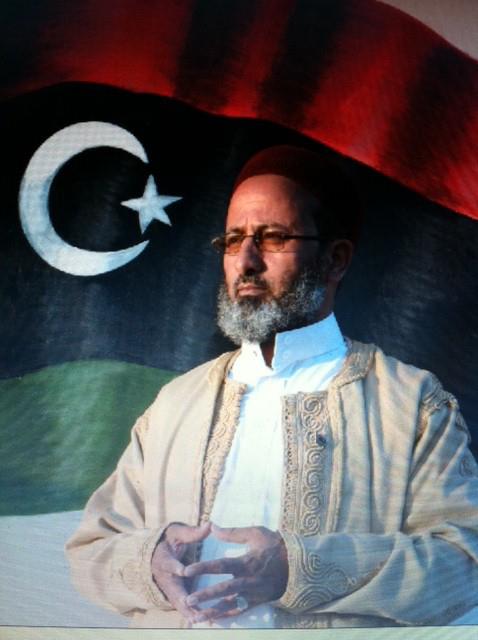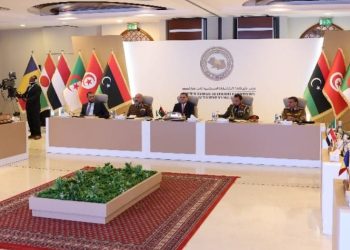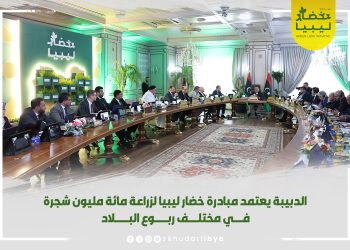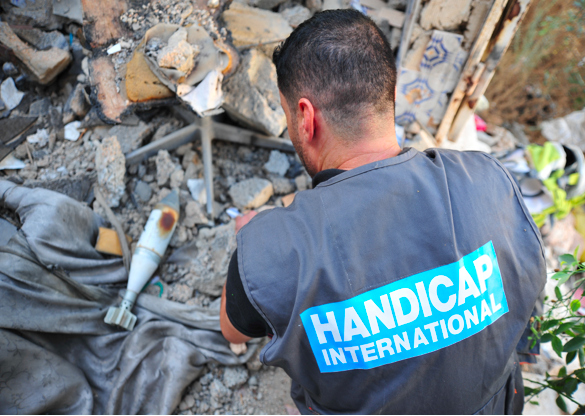By Umar Khan.

Tripoli, 30 August 2013:
Mohammed Busidra will be sworn into the General National Congress (GNC) as an independent member for . . .[restrict]Benghazi early next week, pending formal approval from GNC head Nuri Abu Sahmain.
He will replace Abdelmonem Al-Waheyshi, who resigned after losing in the elections for the head of the GNC to Abu Sahmain. Busidra joins the GNC on the basis that he won the next highest number of votes in the list of Benghazi independents in the 2012 elections after the leading nine were chosen as Congress members.
Originally from Beida, Busidra was a political prisoner for 21 years. After the revolution, worked as a consultant to the head of the National Transitional Council, Mustafa Abdul Jalil.
Busidra told the Libya Herald that he does not intend to be part of any bloc in the GNC: “I would support resolutions from any bloc if they are in the national interest. One day I might support the National Forces Alliance (NFA) and the Justice and Construction Party (J&C) the next day – and the day after it might be Martyrs bloc.”
Asked about a controversial Friday sermon he recently gave in Benghazi, Busidra said that he was invited by Ministry of Islamic Affairs officials to deliver the sermon to calm things down and that he tried to tackle sensitive issues.
“I was in Beida when I was asked to deliver the sermon and I accepted it. It’s a national duty to me,” Busidra said, “I condemned both the attack on Libya Shield and the killings. It is forbidden to spill human blood for no reason.” He said that Prime Minister Ali Zeidan should have made a public statement about Libya Shield, saying: “If he needs them, then he should defend them too.”
Busidra accused opposition groups of running a smear campaign against him, because of his religious and political work.
“Federalists and secularists tried to use that Friday sermon against me and succeeded in putting hatred in the hearts of many against me. But they have failed to stop me from the religious and political activities. I consider this work national duty,” he said.
Busidra added that federalists tried to pin the blame on him after several offices were attacked, but denied any involvement. “Those who attacked these offices are from certain areas known to Benghazi residents,” he said, “most of them don’t even pray and yet they (the Federalists) said it was because of my sermon.”
Busidra said that part of a television interview where he appeared to say say he had sat with those involved in the killings of military officials in Benghazi had been taken out of context.
“The recordings are available from that interview,” he said. “I said that I have met with Islamists that you call ‘extremists’ and I think we only need to do four things to include them in the process.”
These, Busidra said, were to have Sharia Law as the main source of legislation, implement the Political Isolation Law, cleanse the Judiciary from corrupt judges and put military officers involved in the killing of Libyans on trial.
“This statement was read out of context and spread heavily as part of smear campaign against me,” he told the Libya Herald. “Personally, I warned the Islamists that if they continued to create disturbances then many people would blame them – and those who can conduct drone attacks in Waziristan would use them in the Jebel Akhdar too,” he added.
Speaking about the recent killing of Abdul Salaam Mesmari, Busidra said that he had been outspoken but was a nationalist who loved Libya. “He was very aggressive in speech but at heart it was purely out of love for Libya,” he said. “I think the night before he was killed he spoke very angrily about the Ikhwan (Muslim Brotherhood) and the very next day he was killed. It seemed like a deliberate attempt to frame them for the killing.” He added that the killer would have to answer on the Judgment Day.
Busidra said that the investigations into the spate of killings in Benghazi were incomplete and that this appeared to reflect badly on those responsible for the investigations. “These are very important cases and results of investigations would give a lot of answers to many people that accuse the Islamists of being behind these killings,” he said. [/restrict]










